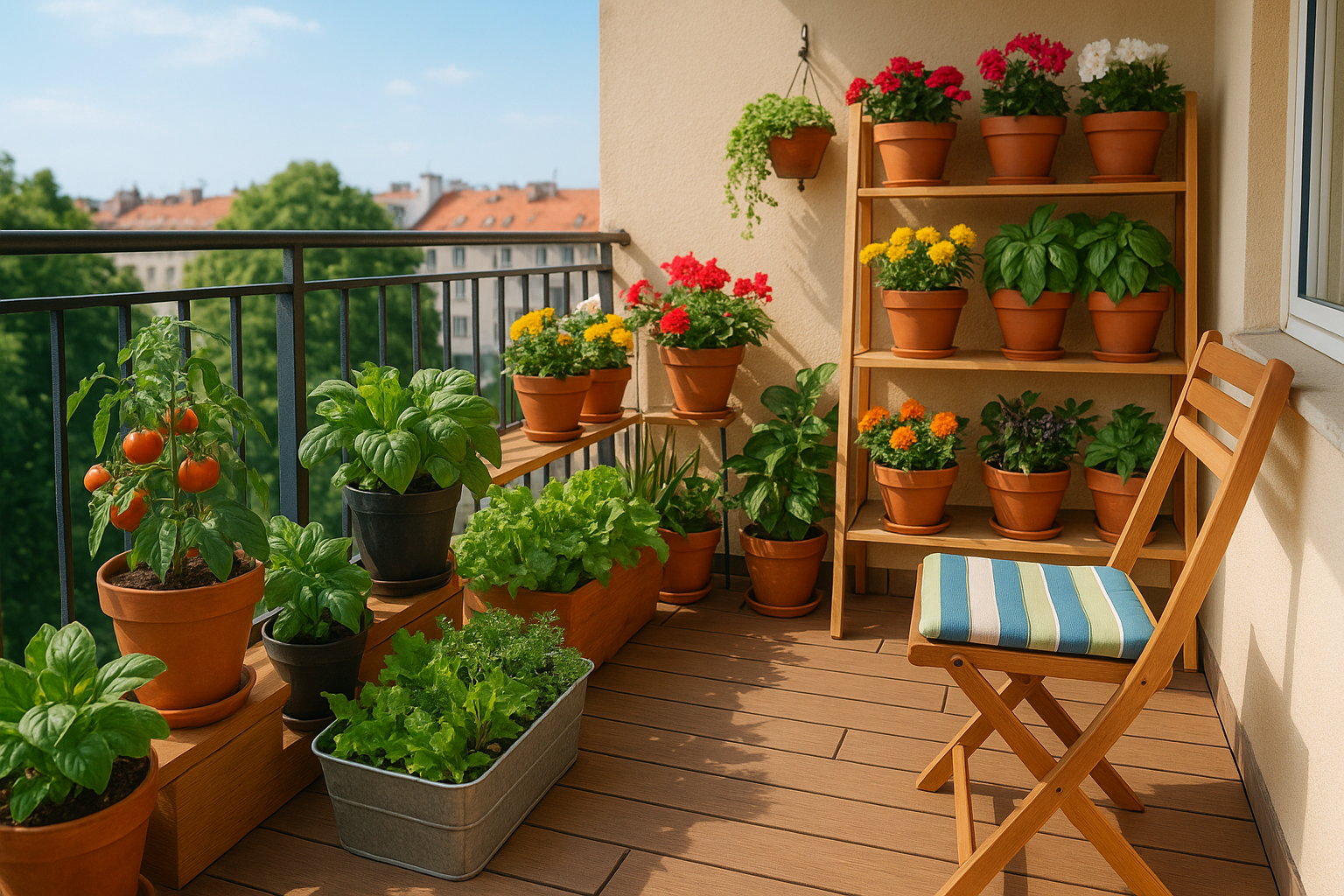Living in an apartment doesn’t mean you have to give up your dream of a garden. A balcony garden offers the perfect solution to bring nature into your home, even in limited space. Whether you want to grow herbs, flowers, or vegetables, this beginner-friendly guide will help you design and maintain a thriving balcony garden.
Why Choose a Balcony Garden?
Balcony gardens offer many benefits:
- Access to fresh herbs and veggies
- A relaxing outdoor retreat
- Improved air quality and aesthetic
- Therapeutic, stress-reducing hobby
Plus, they’re highly customizable to your lifestyle and preferences.
Step 1: Assess Your Balcony
Start by understanding the physical conditions:
- Space: Measure the available area (length, width, height)
- Weight capacity: Balconies have load limits—check with your building
- Sunlight: Observe how many hours of direct sunlight your balcony receives
- Wind exposure: High balconies may need protection from wind
- Drainage: Ensure water can flow out without damaging the structure
This information will influence your plant and container choices.
Step 2: Choose the Right Containers
Good containers are essential for plant health and space efficiency:
- Terracotta pots: Breathable but dry out quickly
- Plastic pots: Lightweight and affordable
- Ceramic: Decorative but heavier
- Grow bags: Flexible and space-saving
- Vertical planters: Maximize wall space
- Hanging baskets: Ideal for trailing plants
Always ensure containers have drainage holes.
Step 3: Pick the Perfect Plants
Select plants based on your balcony’s light and climate:
Herbs
- Basil
- Mint
- Parsley
- Thyme
- Chives
Vegetables
- Cherry tomatoes
- Lettuce
- Peppers
- Radishes
- Spinach
Flowers
- Petunias
- Marigolds
- Geraniums
- Begonias
Indoor-friendly
- Snake plant
- Aloe vera
- Spider plant
Mix and match for color, utility, and variety.
Step 4: Use Quality Potting Soil
Never use garden soil in containers—it’s too dense and may compact over time. Instead:
- Use potting mix designed for containers
- Add perlite or vermiculite for better drainage
- Incorporate compost for nutrients
- Consider coco coir for water retention
Feed your plants with organic fertilizer monthly during the growing season.
Step 5: Water Wisely
Balcony gardens tend to dry out faster due to wind and sun exposure:
- Check soil moisture daily with your finger or a meter
- Water deeply until excess drains out
- Use a watering can with a narrow spout for precision
- Group plants to retain humidity
- Install a drip irrigation system if needed
Early morning is the best time to water.
Step 6: Maximize Vertical Space
You can dramatically expand your garden with vertical features:
- Use shelves, ladders, or wall grids
- Hang baskets on rails or hooks
- Train vines on trellises
- Stack pots or crates creatively
This not only saves space but adds depth to your garden design.
Step 7: Add Decorative Touches
A garden should be both functional and inviting. Enhance it with:
- Fairy lights or lanterns for ambiance
- Outdoor rugs or cushions for comfort
- Wind chimes or small water fountains for sound
- Themed containers (e.g., rustic, modern, recycled)
Create a space you’ll want to spend time in.
Step 8: Protect and Maintain
Keep your garden thriving with regular attention:
- Check for pests weekly
- Prune dead leaves and flowers
- Rotate pots for even sun exposure
- Re-pot overcrowded plants
- Cover or move sensitive plants during storms or heatwaves
A small daily routine makes a big difference.
Step 9: Plan for the Seasons
Not all plants thrive year-round. Adapt your garden:
- Spring/Summer: Grow fast-growing veggies and annuals
- Fall: Switch to cold-hardy greens like kale or arugula
- Winter: Add evergreens or use a mini greenhouse
- Store tools and clean containers during off-seasons
With planning, you can enjoy your balcony garden all year.
A Garden in the Sky
Creating a balcony garden is more than planting a few pots—it’s about building a little ecosystem that brings joy, peace, and nature into your everyday life. With a bit of effort and creativity, your balcony can become a lush, productive oasis above the city streets.

